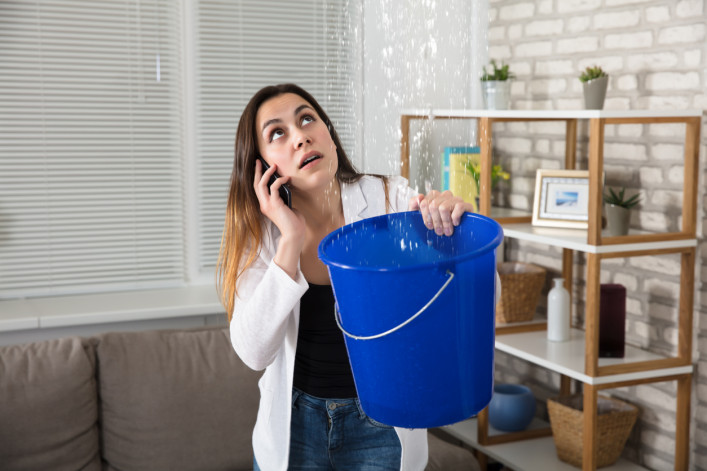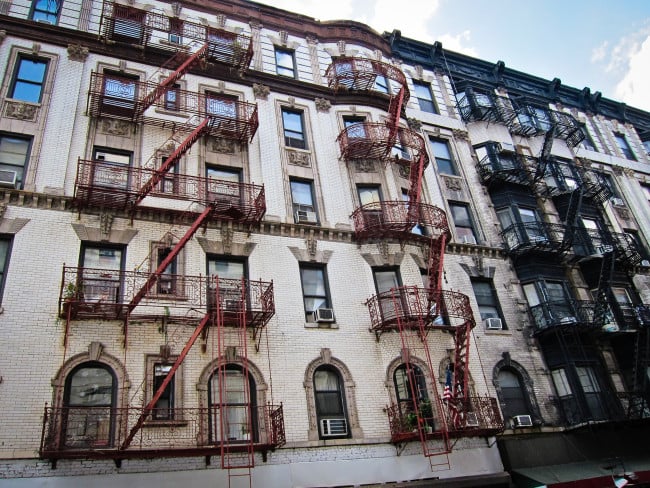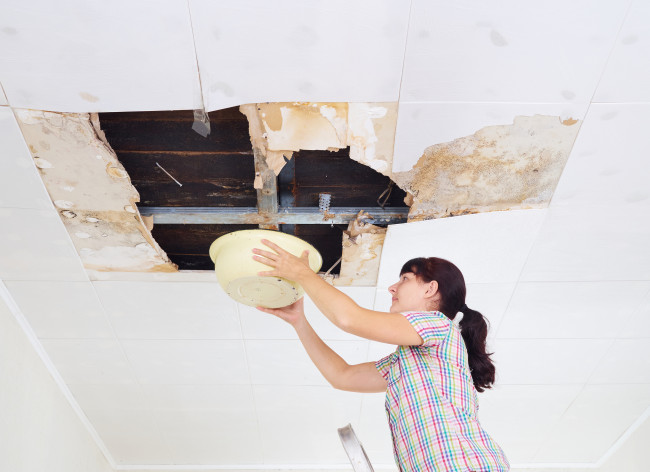Can my landlord make me pay for damage from an overflowing toilet?

If you and your landlord disagree about who is responsible for the incident, the burden of proof is on your landlord.
iStock
Our toilet overflowed and our landlord wants us to pay for the damage to our apartment and the one below us. Can he force us to pay for this?
If the overflow was your fault, you're responsible for the damages, our experts say, but if it was the result of bad plumbing, then it's on your landlord.
"Tenants are almost always responsible for this situation, and the exposure is typically picked up by the liability portion of your insurance," says Jeffrey Schneider of Gotham Brokerage (a Brick sponsor.)
Accidents happen, and situations like this are just one more reason all New Yorkers should invest in apartment insurance. For renters, average policies only cost about $15 per month, and are calculated based on the size of your apartment and the value of your possessions. A basic policy will help to cover issues like repairs for water damage arising from an overflowing toilet or other leaks.
You'll need to look into the issue, though, to determine whether you were really at fault.
"If the toilet overflows due to the tenant’s misuse or abuse, the tenant would be held responsible. However, if the overflow is not directly related to the tenant’s normal use but caused by faulty or improper plumbing, the landlord should be held responsible for damages," says Dennis R. Hughes, a broker with Corcoran.
Whoever is at fault, the landlord must repair the issue regardless: the city's Warranty of Habitability legally requires landlords to provide tenants with a safe, livable apartment, which includes one that is free of leaks, water damage, peeling paint and plaster, and mold.
Pest issues can also arise from water damage: "Any such water event can cause moisture pests like fungus beetles, psocids, and springtails," says pest control expert Gil Bloom of Standard Pest Management. "Be sure the area is fully dried before repairs through the use of a dehumidifier and while the wall is open, dust with silica gel dust like Cimexa" to absorb moisture.
The trouble is that it's not always easy to determine who was at fault. If you and your landlord disagree about who is responsible for the incident, the burden of proof is on your landlord.
"It can be really hard to prove a tenant was at fault," says Sam Himmelstein, a lawyer who represents residential and commercial tenants and tenant associations (and FYI, a Brick sponsor). "You have to prove negligence, which means the tenant didn't exercise reasonable care, recklessness, which is a knowing disregard for consequences, or intentional conduct, which means the tenant was deliberately trying to cause damage."
The dispute could escalate if the landlord believes the tenant was in the wrong and should pay for the costs of the repairs and damages, and the tenant refuses to comply. Depending on the total costs, the landlord could sue the tenant in court. If the landlord wins the case, the tenant could have their wages garnished or their bank account seized in order to reimburse the landlord.
However, such a situation is unlikely in the case of this kind of damage, as the costs of repair tend to be relatively low.
"You rarely see landlords suing for this," Himmelstein says. "It's a lot of trouble for not a lot of money."
Trouble at home? Get your NYC apartment-dweller questions answered by an expert. Send your questions to [email protected].
For more Ask an Expert questions and answers, click here.
You Might Also Like

























